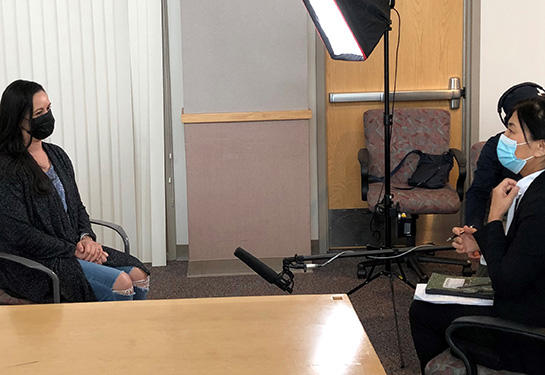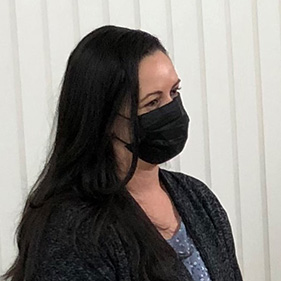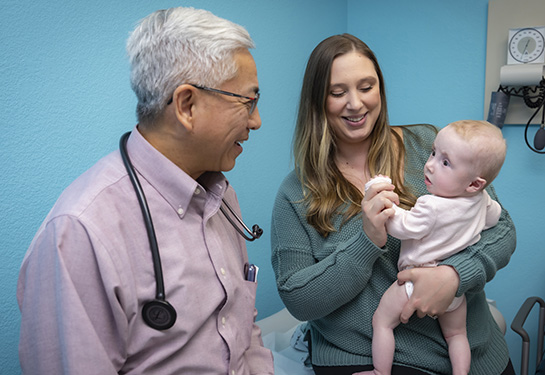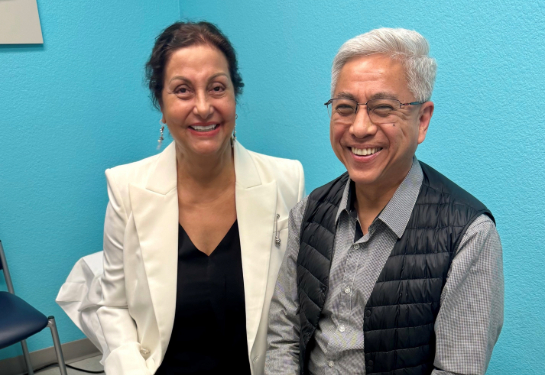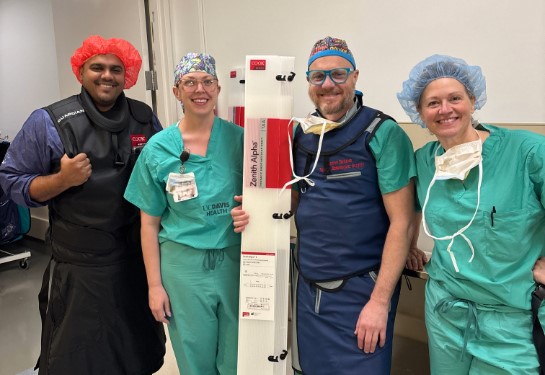Heart disease patient appreciates female-focused care
UC Davis Women's Cardiovascular Medicine Program is dedicated to caring for women with heart disease
As Mariel Garcia sat down for her interview with NHK, Japan’s public broadcasting network, she shared how exhausted she felt at her six-week postpartum checkup. Her third pregnancy had been much more complicated than her first two. She had dealt with gestational diabetes, gestational hypertension and preeclampsia.
“I knew it was going to be a more challenging pregnancy, but I didn’t know it was to be as hard as it was,” Garcia said. “Having just turned 40, my doctors told me I was at higher risk for pregnancy-associated disorders. The experience really took a toll on me physically.”
Garcia explained to her interviewers that during her appointment her doctor had shared that her blood pressure and cholesterol were much too high. With her pregnancy-associated disorders and family history of cardiovascular disease, she was at high risk for heart disease.
“During the checkup, all I could think about was I did not want to end up like my mother, who needed open heart surgery when she was just 49,” Garcia explained. “Luckily, my OB/GYN referred me to see Dr. Villablanca.”
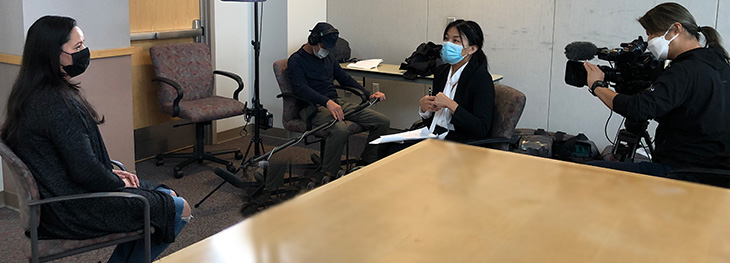
UC Davis Women's Cardiovascular Medicine Program
Garcia was speaking with NHK for a special documentary on gender-specific medicine. Among the topics being covered in the film was UC Davis Women's Cardiovascular Medicine Program and its efforts to provide dedicated care for women who are at risk for or who have heart disease.
The UC Davis Women's Cardiovascular Medicine Program is directed by Amparo C. Villablanca, professor of cardiovascular medicine. It is the nation's first program dedicated to female-focused heart disease care, research and education. The pioneering program strives to enhance awareness of the importance of women's heart health among patients, health care providers and policymakers.
“Unfortunately, Mariel’s situation is not uncommon,” Villablanca said. “Most women do not know that heart disease is their leading killer, and most do not know that it is preventable through heart-healthy lifestyle changes.”
According the American Heart Association, heart disease is the No. 1 killer of women — killing more than all forms of cancer combined. Yet only 55% of women realize heart disease is their biggest health threat.
Heart disease in women is largely under-recognized. Heart disease and heart attacks have been predominantly associated with men. Historically, men have been the subjects of the research done to understand heart disease and stroke, which has been the basis for treatment guidelines and programs. As a result, cardiovascular disease in women is frequently underdiagnosed and undertreated, and many women fail to receive interventions that could save their lives.
“Working with Dr. Villablanca has been a blessing,” Garcia shared. “Knowing that I am receiving care for my heart that is tailored to me as a woman is so reassuring.”
Knowing that I am receiving care for my heart that is tailored to me as a woman is so reassuring.”—Mariel Garcia
Heart healthy lifestyle changes
Growing up in Puerto Rico, many of Garcia’s family members struggled with heart disease and diabetes.
“All of our family events revolved around food,” Garcia recalls. “Additionally, the food we ate was often cooked in fats and was fried. Working with Dr. Villablanca has made me realize many of things I often do are not heart healthy.”
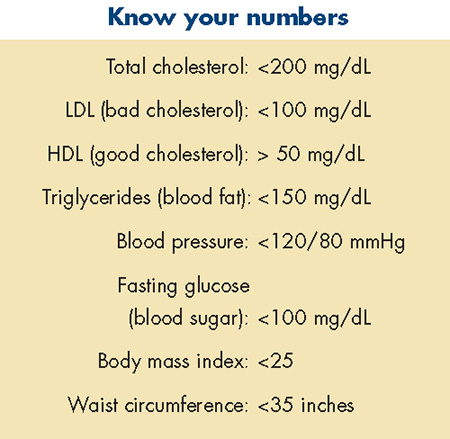
During their appointments, Garcia and Villablanca have worked together to develop a plan for her treatment. Garcia now “knows her numbers,” which include her cholesterol levels and blood pressure, to track her heart health. She has also cut out all meat except fish from her diet, exercises regularly and takes her medications.
“The key to reversing the risk for heart disease is preventing the risk factors that contribute to heart disease and increasing awareness of new therapies which can lower the incidence of the disease,” Villablanca explained. “Mariel has been very motivated to attain heart a healthy lifestyle and she is on a positive track.”
Garcia is grateful to everyone at the UC Davis Women’s Cardiovascular Medicine Program for the comprehensive treatment and education she has received.
“Everything I have learned from Dr. Villablanca has allowed me to take back control of my life,” said Garcia. “I feel incredibly fortunate to have received treatment from her.”

